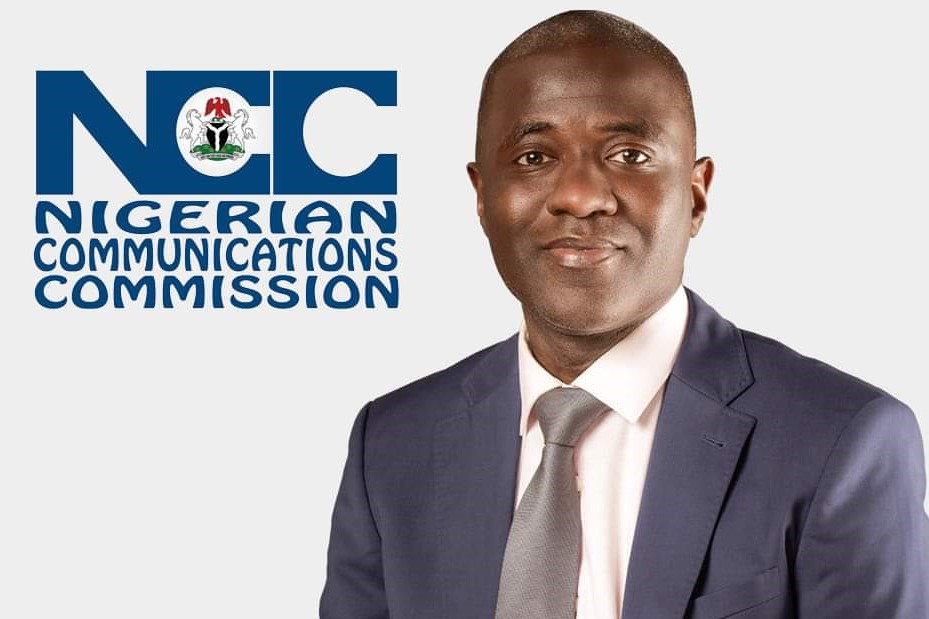The Nigerian Communications Commission (NCC) by the provisions of the Nigerian Communications Act 2003 (NCA 2003) has as part of its responsibility, the regulation of the Telecommunications Sector, as a critical driver of Digital Economy in Nigeria.
Today’s event is aimed at providing a platform to enable stakeholders share perspectives on the opportunities, challenges and impact that operations of Data Centre services hold within the Nigeria’s Digital Economy.
The evolving primacy of data, encapsulated in the in the slogan – Data is the new oil – has continued to resonate globally with increasing intensity in the context of the emerging digital economy. This is why it has become a subject of special consideration by regimes, requiring appropriate structures and frameworks to truly tap and optimize the opportunities provided by this new order. I must specially congratulate you on this all important theme for this year’s event. Data centre services, no doubt, hold the keys to the ultimate crystallization of this new line of thinking within the ICT sector and by extension to the greater national economy of nations in so many ways. One of such is the added impetus towards improving the security and reliability of the nation’s digital infrastructure. The nature and functional model of data centres with special regard to its centralized architecture, with compelling assurance provides greater guarantee against various malicious attacks and unauthorized access to sensitive information. This is in addition to the efficiency engendered by the robust economies of scale through critical resources shared and made available by Data Centres. Being able to substantially underwrite some of our critical resource gaps such as weak energy challenges, Operators within the Data Centre space ensure that the well established and globally accepted tripods of confidentiality, integrity and availability are so seamlessly provided for uptake by users in the most economical way.
Recent developments point to the limitless treasure within this space. Africa has recently assumed a new frontier and compelling destination for global Big Tech players. These includes such giants as Google with its Equiano subsea fibre cable spanning 15,000 km from Portugal to South Africa with strategic landing points in Nigeria and Namibia and expected to increase connectivity more than five-fold within Nigeria while creating an expected 1.6m jobs. Also, Meta, the parent company of Facebook, is equally at the threshold of launching its own subsea cable called 2Africa in 2024 to connect 16 African countries at an estimated cost of $1bn. It is targeted to generate close to $36bn of economic output within 2 to 3 years of operation. While these no doubt portends significant socio-economic impacts for Nigeria, it brings to fore the debate around digital sovereignty and the need for national policy and regulatory frameworks to further localize traffic and data. The Federal Government of Nigeria has taken laudable steps to encourage and support data centres services in the country in its drive to ensure data sovereignty. This is encapsulated in the National Digital Economy Policy Strategy (NDEPS) Pillar #3 on Solid Infrastructure which states that; The Government will Promote the Development and Deployment of robust and scalable data center infrastructure.
It therefore goes to show that these centres, and their potential to attract foreign investment remain massive. The global data centre market is worth billions of dollars, and Nigeria is well-positioned to attract a fair share of this investment. By providing a reliable and secure environment for the services they offer within a well nurtured policy and regulatory framework, Nigeria represents an attractive destination for more investment in data centre services and operations. The implication of such investments on jobs in the construction, operation, and maintenance of these data centres can only be imagined.
With the commencement of the implementation of the African Continental Free Trade Area (AfCFTA), the role and criticality of Data centres become increasing overwhelming. This is underscored by the kind of efficiency derivable when critical resources are shared at costs far significantly smaller than the actual costs of setting up such resources from scratch. It therefore provides a veritable platform for greater productivity and the attendant national competitiveness for businesses and public sector entities to effectively harness the opportunities to be unlocked from the estimated $1.2 Trillion latent treasure within the AfCFTA continental block through its 1.3 billion people.
The NCC has long recognized the imperatives around the sharing of critical resources within the telecoms industry, particularly in relation to recent engagements on regional roaming with the ECOWAS. This is underscored by the Commission’s recent guidelines and framework, leading to emergence of collocation and infrastructure sharing entities such as tower companies that rest on this premise. The Commission has also concluded its framework, and further facilitated the test run on national roaming and active infrastructure sharing to further galvanize efficient roll out through a well coordinated network optimization and expansion strategies.
The Place of Broadband in the Ecosystem:
The NCC recognizes the place of Broadband infrastructure and technology in interconnectivity and its impact on national development, increased content and social inclusion. Policy and regulatory initiatives had been geared towards public investment in broadband backbone networks through harmonization of RoW charges and the allocation of more spectrum for existing mobile and 5G technologies.
With the recognition of the new place of data within the ecosystem, the Commission had proactively taken steps leading to:
An active functioning market that brought about competition and improved quality of service, with appropriate regulatory measures to guide the industry in determining a cost based transmission trunk link rates and mobile access networks. We have also carried out extensive assessment of the broadband value chain, including the analysis of market features such as ecosystem mapping, pricing, technology, regulatory climate and competition.
These efforts have led to reduction in data prices in the mobile sector including rapid expansion of non-voice service portfolios that created new revenue streams for network and data centre operators.
Infrastructure outsourcing and collocation that created a positive impact on operators’ profitability with increased expansion to underserved rural areas towards increased user experience and greater data capture.
More spectrum release for 5G services to further lower costs of providing mobile broadband services.
Additionally, the recent conclusion of the framework and licensing of Mobile Virtual Network Operators represents another big bang in the industry after the launch of GSM in 2001. This is expected to engender greater expansion, more reach and additional choice to consumers in addition to enhanced service uptake on Data Centre Operations. Digital platforms are expected to rapidly expand and stimulate the digital ecosystem across e-commerce, banking, education, entertainment, health and government. There have also been increased rollout of Fibre infrastructure across metropolitan areas, especially Fibre-to-Base stations required to support the surge in bandwidth demand.
Clearly, Data Centre operators are not immune to the overwhelming challenges confronting the industry that ranges from digital literacy, poor power supply, multiple taxation and regulations at different levels of government as well as the recent deregulation of the downstream petroleum sector and the attendant subsidy removal, coupled with the exchange rate harmonization.
The transformation in the Nigerian macro-economy underpinned by developments in the broadband space such as subscriber growth, improvements in digital literacy and the proliferation of relevant content, all point to positive fundamentals for the Broadband Landscape in Nigeria. These factors combined with the increasing global recognition of broadband as a critical infrastructure and socio-economic tool for national growth present an imperative for Nigeria to sharpen its focus on broadband development and increasing support for Data Centre Services in Nigeria.
Conclusion
In conclusion I would like to reiterate the fact that mainstreaming of data centres require our collective efforts to take our own destiny in our hands through individual and sectorial supplementary feeds and enabling supports that ensures data centres not only operates to guarantee national Digital sovereignty, but are able to prioritize contents reflecting our cultural norms, contexts and ideological values, while reaping the attendant socio-economic benefits within the value chain.
The Commission will continue to facilitate and support its licensees, as major stakeholders, to continue to explore additional frontiers of expansion and greater opportunities for investment within the data centre space, whilst also ensuring strict adherence to data protection regulations.
Prof. U.G Danbatta, FNSE, FRAES, FAEng, FNIEEE
Executive Vice Chairman/CEO
Nigerian Communications Commission
KEY NOTE ADDRESS AT THE FOURTH TELECOMMUNICATIONS SECTOR SUSTAINABILITY FORUM





